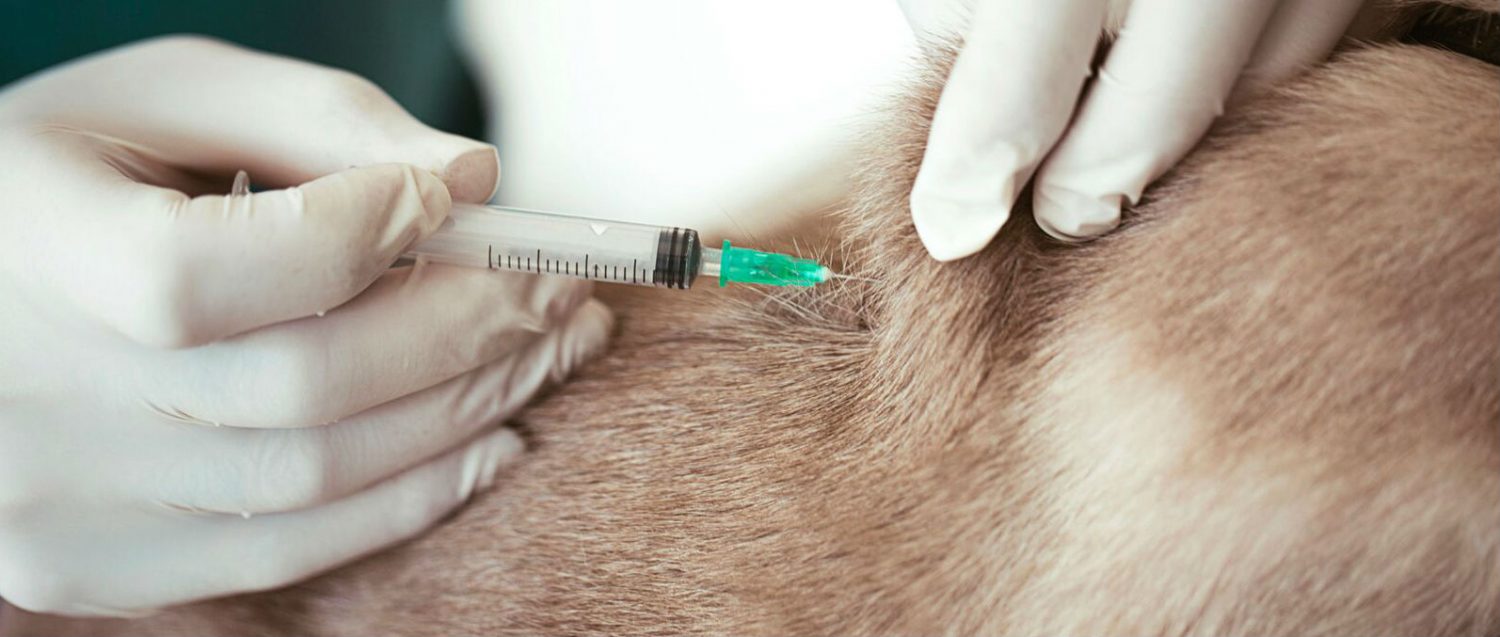After my dog received a vaccination his eyes started to swell, had lower energy and heavy breathing. Is this a vaccine reaction and what should we do?
Original Question: My husky just got his vaccination today at 10am but I've noticed his eyes got swollen at around 12 in the afternoon. I tried to put ice on him but the swelling doesn't go away and it’s spread to his nose and other eyes. Around 4pm when I went to see him I noticed him not being as active and was breathing heavy as well. - Moriko
 May 10, 2018
May 10, 2018
Hi Moriko,
Thanks for your question. I’m sorry to hear that you’re dealing with this.
By your description, this sounds like a typical vaccine reaction. There are two general types of reactions that dogs can have to a vaccination. One is an immediate anaphylactic reaction and the other is a longer delayed reaction called cell-mediated. This sounds like the latter and your description is very typical of what I’ve seen on many occasions.
My recommendation would be to call your veterinarian and book a physical examination and consultation as soon as you can. They will often administer an injection of an immune suppressant such as a steroid or an antihistamine. By performing an injection it will allow the medication to act more rapidly. I would often follow up with an oral form of the medication as well, such as pills, for the owner to take home and continue. There is usually a quick and effective response by implementing a treatment plan like this. Your veterinarian may want to be more aggressive if he is concerned. They may recommend hospitalization with monitoring and possibly some diagnostic testing if they’re really worried. Every veterinarian will have a treatment plan that differs just a little bit based on their experience and past episodes of success.
Don’t forget to discuss a preventative plan for the future. Look at the vaccines that were given and try to identify the one that may have caused the reaction. If there was a new vaccine given or if one was repeated for the first time, this might be the vaccine that created the reaction. You’ll want to discuss the risks and benefits of repeating that vaccine in the future. If that vaccine is protecting your dog from something very serious that they are at great risk of contracting, you can decide whether you go forward giving it in the future and you can build a plan to prevent this reaction before it ever happens. If a patient was sensitive to a vaccine that the owner still wanted to give, I would pre-treat the patient with an injection of antihistamine before administering the vaccine. This would often prevent the reaction completely. Speak to your veterinarian about this and become informed so that you can make the decision for yourself.
I hope this helps and I wish you the best.
Dr. Greenway
Disclaimer: healthcareforpets.com and its team of veterinarians and clinicians do not endorse any products, services, or recommended advice. All advice presented by our veterinarians, clinicians, tools, resources, etc is not meant to replace a regular physical exam and consultation with your primary veterinarian or other clinicians. We always encourage you to seek medical advice from your regular veterinarian.

